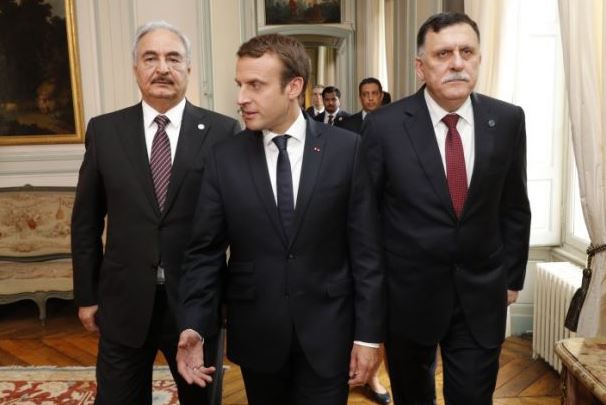
t has now been over two months since General Khalifa Haftar and his forces, the Libyan National Army (LNA), launched a military campaign to take Tripoli from the UN backed Government of National Accord (GNA), like reported by opendemocracy.net.
On the 3rd of April, the LNA deployed thousands of men and heavy artillery from their rear base in eastern Libya into the west of the country with the stated aim of capturing the capital. Now, with over 7300 people killed and around 39 80 000 people displaced, it appears that international efforts to bring the country closer to peace have been dealt a major and devasting blow.
UN Secretary General Antonio Guterres said at the end of last month that Libya was getting closer to forming a united caretaker government. In fact, the UN was due, on the 14th and 15th of April, to hold a conference to establish Libya’s “path to reconciliation and elections”. This represented the latest attempt by international actors to bring warring parties together for peace talks. For instance, soon after becoming President of France, Emanuel Macron attempted to broker an agreement between Haftar and leader of the GNA, Prime Minister Fayez al-Sarraj. However, in all of these attempts, progress has been slow.
In a large part, this is due to Haftar, who has continued to reject the legitimacy of the GNA and has long sought to “seize, rather than share, power.” This, then, raises important questions about why so many countries have continued to support Haftar. This includes the UAE, Egypt, Saudi Arabia and Russia and – perhaps most surprisingly – France, who has been at the forefront of recent peace talks and has publicly and diplomatically supported the UN backed GNA.
Following the rise of so-called Islamic State (IS) in Libya, France and some of its allies – including the US and the UK – provided support to local forces. Some of these groups were those from the Libyan city of Misrata, who were aligned (albeit belatedly and conditionally) with the GNA, but some support – particularly from the French – also went to the LNA who have maintained a strong stance against the GNA, the internationally recognised government in Libya.
By working with these local groups rather than going through the GNA, these countries weakened the legitimacy of the GNA and emboldened rival groups. According to Hayder al-Khoei, Ellie Geranmayeh and Mattia Toaldo of ECFR, they showed “how little [the GNA] was actually able to deliver to the forces on the ground in terms of weapons, money or political support.” As a result, they note, the GNA has continued to lack any “real coalition of political and armed groups backing it” and while some militias have mobilised against Haftar in recent weeks, it remains unclear how many will stay allied with the GNA once the immediate fighting has stopped.
In contrast, they argue, this support strengthened Haftar’s “hand with both his ‘domestic’ opponents and rivals in eastern Libya and vis-à-vis the government in Tripoli.” And as Alison Pargeter noted in a 2017 report for the Remote Warfare Programme, by backing militias rather than the GNA, Western forces “set off more internal power struggles in place of dialogue and cooperation between groups.”
Even amidst the recent violence, contradictory national policies have hindered concerted international efforts to stem the violence. France stopped an EU statement, calling for a ceasefire, from mentioning Haftar and the US (as well as Russia) said it could not agree to a UN Security Council resolution condemning Haftar. In fact, according to the White House account of the conversation, President Trump also went as far as to publicly praise the general’s “significant role in fighting terrorism.” In doing so, both countries are providing tacit approval for the general’s policies and actively applying diplomatic pressure to prevent international condemnation of his actions.
Yet, no plan for Libya can be built on further empowering Haftar. Ghassan Salamé, UN envoy for Libya, warned against states trying to do just this, asking how Haftar will deliver on his promise “to unify the country” when “he doesn’t govern softly, but with an iron fist.” So far his military operations have “displac[ed] thousands and unleash[ed] exclusionary forces such as tribalism and ultraconservative Salafism.” Moreover, his political support base scarcely extends beyond the distinctive eastern region, and even there he remains a problematic figure, especially given his past links to the Gaddafi regime. Even in this latest battle, Haftar’s hopes of an easy victory are looking less likely, with forces aligned to the GNA now successfully pushing back the LNA in some parts of the city. As, Paul Taylor noted in Politico “he’s not doing too strongly as a strongman.”
As the international community seeks to stem the ongoing violence, it must take stock of the devastating impact of French (and to some extent US and UK) policy towards Libya. Not only have these policies stymied progress but they have also exacerbated tensions and instability within an already fragile political situation. Strongmen cannot provide stability in the long-term, the sooner we learn this the sooner we stop perpetuating instability and violence in the places we intervene. The international community must urgently reassess the operations of countries like France in Libya, which have emboldened General Haftar – potentially to the detriment of regional security.


